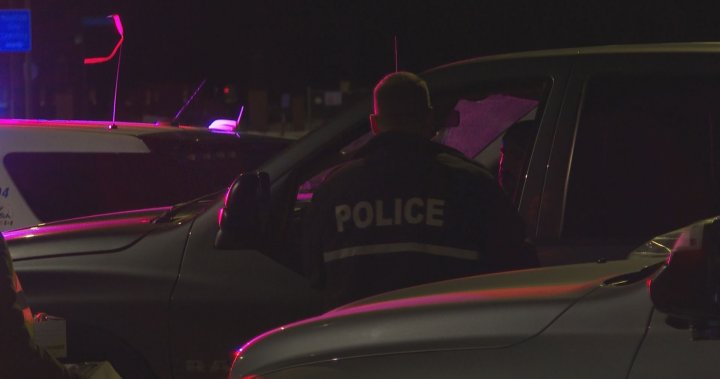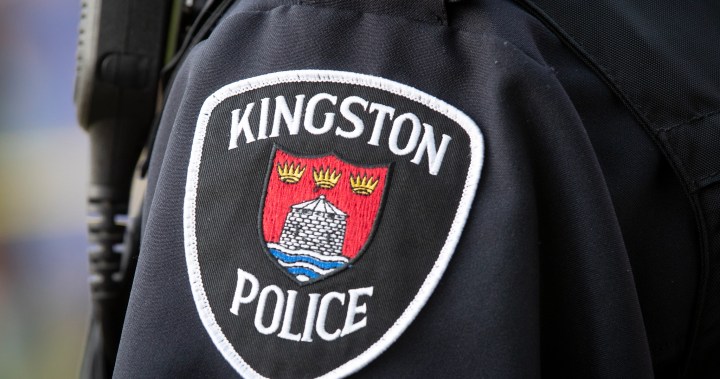MADD Canada is speaking out after a devastating crash in Ontario killed three children and left others fighting for their lives, in a collision police allege involved a 19-year-old impaired driver.
The tragedy, which happened on Friday, May 18 in Etobicoke, has renewed urgent calls for stronger impaired driving prevention and enforcement in Canada.
“This is a situation where so much of a family is just torn apart,” said Tanya Hansen Pratt, national president of MADD Canada.
“Our hearts go out to the family and to their friends. We are very frustrated and heartbroken for them.”
The collision involved six people in the struck vehicle including a mother, her four children, and her partner.
Two of the children, ages 13 and 15, were pronounced dead at the scene, while their six-year-old sibling died later in hospital. The 10-year-old child and their mother remain in hospital.
A GoFundMe campaign launched to support the survivors and help cover funeral and medical costs has already raised almost $150,000, as people share their condolences from all over the nation.
In response to the crash, Hansen Pratt emphasized the ongoing issue of impaired driving.
She says part of the problem is that a segment of the population still views the risk as “minimal”, especially among young men, who remain a high-risk demographic.
“In this case, of course, he falls directly into that demographic when we have a 19-year-old, impaired driver who has taken three lives and injured three more people and just completely devastated an entire family and community,” she said.
The emotional toll of impaired driving has been felt by countless families across Canada.
One of the most high-profile cases in recent years was that of Jennifer Neville-Lake.
Neville-Lake was a loving mother to her three young children, but a crash on Sept. 27, 2015, robbed her of the chance to watch them grow up. Daniel, 9, Harrison, 5, and Milly, 2, were all killed in an impaired driving collision in Vaughan, Ont. Their grandfather, Gary Neville, was also killed.

Get breaking National news
For news impacting Canada and around the world, sign up for breaking news alerts delivered directly to you when they happen.
Speaking with Global News at the time, Neville-Lake said the loss shattered her sense of identity.
Despite decades of public education and strict laws, impaired driving continues to kill and injure people.
Dr. Donald Redelmeier, a physician at Sunnybrook Hospital and professor at the University of Toronto, says that despite the known risks, many drivers still underestimate the dangers because they’ve gotten away with it before.
“What many people don’t realize is that the average person who drinks and drives needs to go over 1,000 miles before the laws of statistics catch up with them,” he told Global News.
“This is why personal experience is so beguiling because, for many individuals, it’s not the first time they’ve gotten behind the wheel with some alcohol in their system. But every one of their past trips has ended uneventfully. So, it creates this false sense of security, that somehow, I’m a special driver and immune to the impairing effects.”
About one-third of serious motor vehicle crashes have alcohol involvement, according to Dr. Redelmeier. “Both the minor crashes as well as the ones that are life-threatening,” he added.
Some experts and advocacy groups say more could be done in Canada when it comes to enforcement measures aimed at preventing impaired driving.
“In Australia, the average driver is breath-tested once a year,” Dr.Redelmeier said. “In Ontario, people tested maybe once every five years. That’s not enough.”
Hansen Pratt agrees. “People don’t change their behaviour based on the sentence, they change it if they believe they’ll get caught,” she said. “That’s why mandatory alcohol screening has helped. The fear of being stopped is a real deterrent.”
MADD is also urging Canadian lawmakers to follow the lead of the United States, which has passed legislation requiring all new vehicles to be equipped with in-car impaired driving prevention technology in the coming years.
The Etobicoke crash follows another collision in Nova Scotia just over a week earlier, where police believe a driver was impaired and travelling in the wrong direction on the highway. Five people died in that incident.
“These tragedies don’t happen by accident, they happen because of choices,” said Hansen Pratt. “When someone gets behind the wheel impaired, they could destroy a family, a community. They could cause a lifetime of devastation.”
And for those who still think it’s safe to drive after drinking or using drugs, Hansen Pratt says the easiest way to avoid these tragedies is to plan ahead. “It’s not worth it. There is always another way to get home. Call a cab, use a rideshare, stay over.”
“And if you see someone you believe is impaired on the road, call 911. You might save a life,” she added.
© 2025 Global News, a division of Corus Entertainment Inc.






